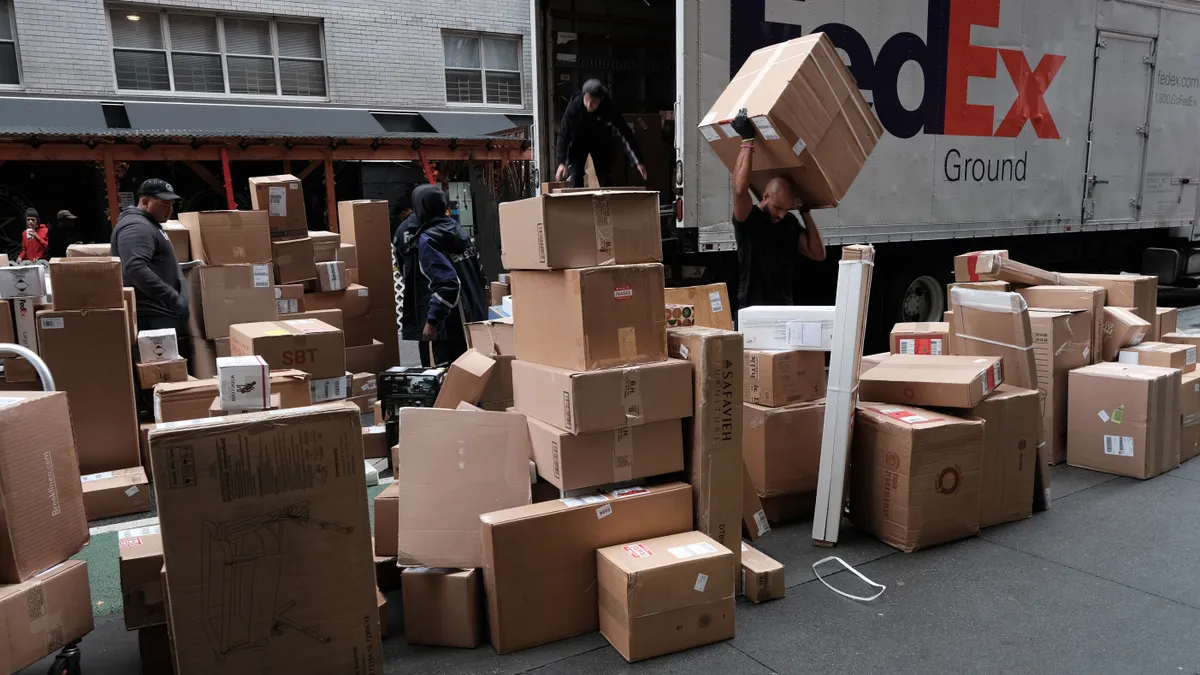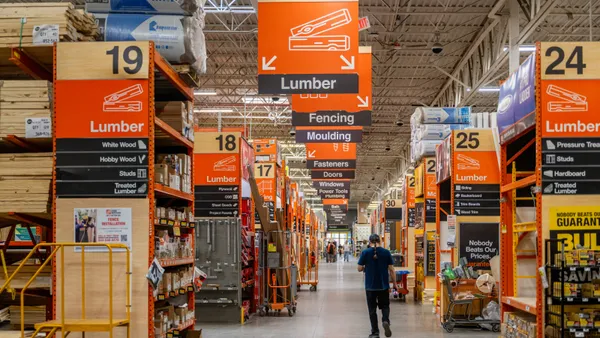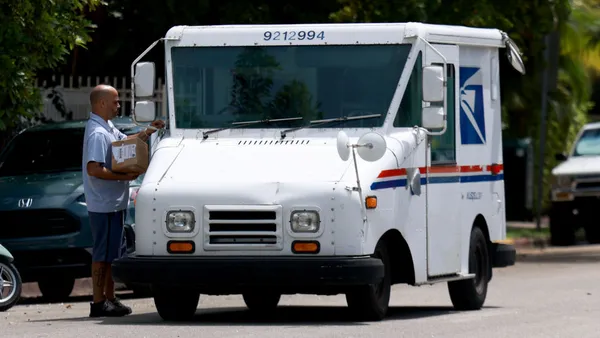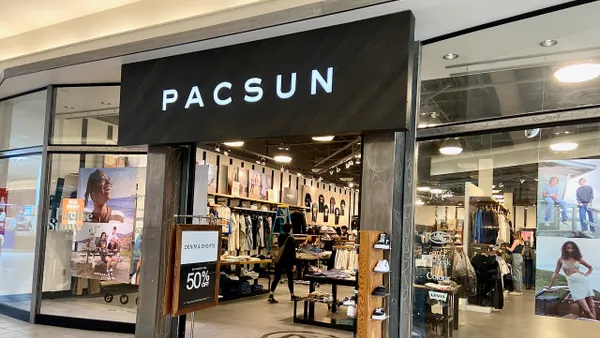Dive Brief:
- FedEx is standing firm on its use of peak season surcharges, even as competitors in the U.S. Postal Service and Amazon Shipping will deliver this year without the added holiday fees.
- Peak season surcharges allow FedEx to boost its capacity and provide strong service during a high-demand period, EVP and Chief Customer Officer Brie Carere said on an earnings call last week. Rival UPS has offered similar reasoning for its holiday fees.
- "From a pricing strategy perspective, we're committed to our strategy, which does include peak surcharges," Carere said. "We think that's really important. We need to invest in the network."
Dive Insight:
In terms of pricing, FedEx is staying the course for the upcoming peak season, which it expects to be similar demand-wise to last year.
"There is really no difference in our approach other than to say our service is really strong," President and CEO Raj Subramaniam said. "We expect normal seasonality versus the volumes we are seeing today and probably year-over-year comparable to where we were last year."
The company's peak season surcharges primarily target large-scale customers that see their volumes surge during the holidays. Its "Demand — Residential Delivery Charge," for example, applies to enterprise-level customers shipping more than 20,000 residential and FedEx Ground economy packages. FedEx pre-negotiates these fees with most shippers they're applicable to.
Those are reasons why Carere isn't worried about the U.S. Postal Service's lack of holiday surcharges, which the agency believes will be a competitive advantage.
"The vast majority of our customers actually do not pay a peak surcharge because their volume just doesn't flex up enough to qualify for the peak surcharge," Carere said.
As for Amazon, Carere added that FedEx has a particular advantage over the company’s relaunched ground shipping service. Because FedEx doesn’t retail any products of its own, there’s no risk of FedEx competing with its shippers, which Amazon has been criticized for with its private-label business.
"The market and customers, I think, really value the fact that when they win, we win, and they don't have to worry about a provider who is going to compete with them," Carere said.















